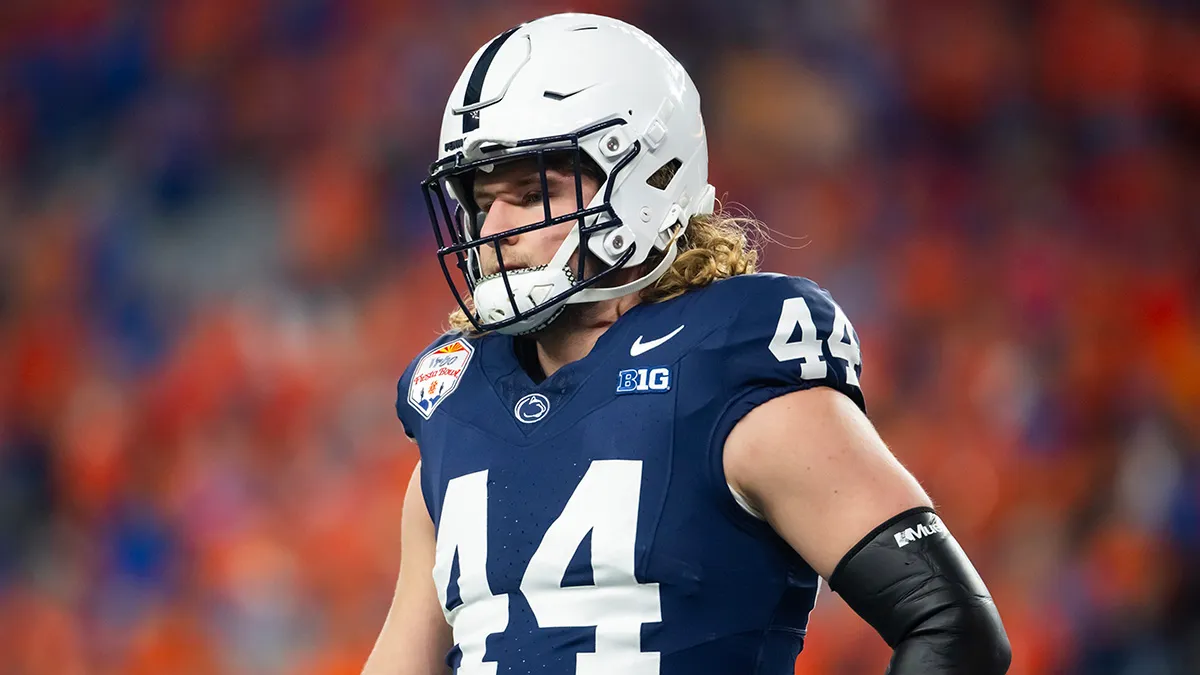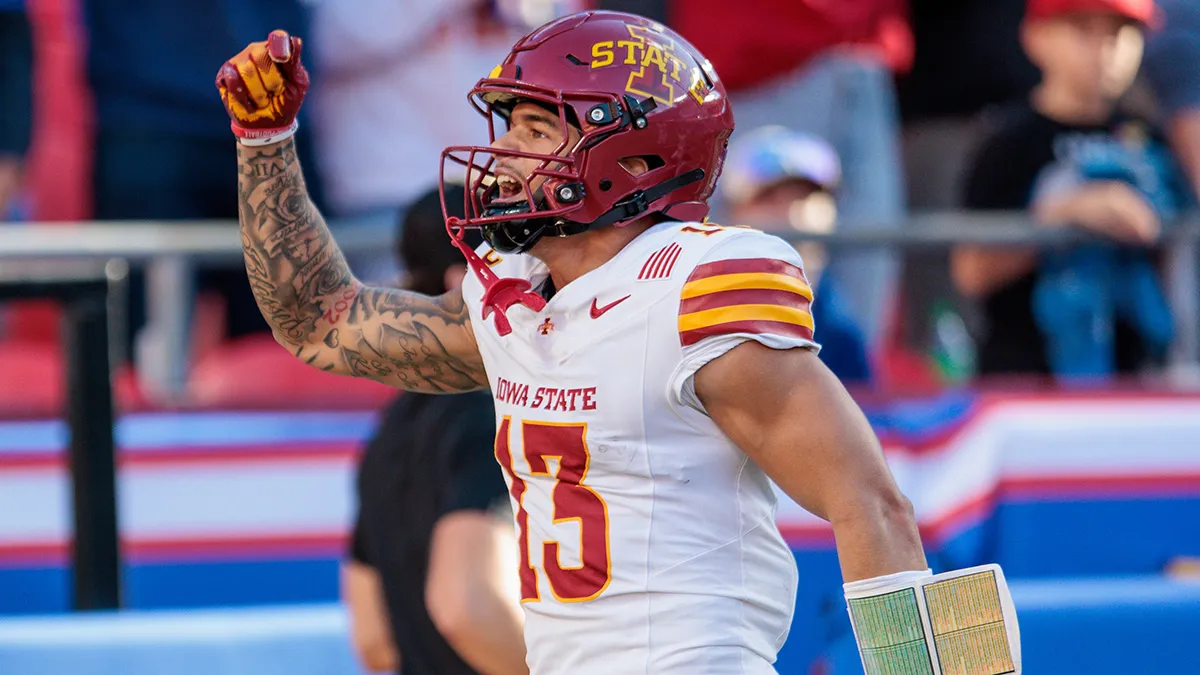
FOXBORO -- When Travaris Cadet went down with an apparent leg injury early in Saturday's practice, it further muddied what was already an unclear situation when it comes to the Patriots third-down running back role.
Coming into training camp, the job -- vacated by Shane Vereen when he signed with the Giants in the offseason -- was very much up for grabs. A competition brewed between a handful of shifty backs with dependable hands, including Cadet, James White, Brandon Bolden and Dion Lewis, with Tyler Gaffney getting a chance in passing situations as well.
But in the last two weeks, the competition has been more about who's available than who's performing best. Gaffney and Lewis have been out injured for most of the last week, and Cadet's absence left even more repetitions on the table for White and Bolden in the team's lone practice of the weekend.
When healthy, Cadet has looked like one of the most advanced pass-catchers of the group, reeling in impressive grabs on an almost daily basis. But coming from New Orleans, Cadet was in some ways a receiver listed as a running back. He carried the ball just 10 times for 32 yards last season, while being targeted 51 times in the passing game. In 26 games through two seasons prior to last year, he carried the ball just once.
Whoever wins the team's third-down back gig -- which was retained by Danny Woodhead and Kevin Faulk before Vereen took over -- will likely be asked to make the occasional carry when the defense allows for it. He'll certainly be asked to pass-protect for quarterbacks Tom Brady and Jimmy Garoppolo whenever the situation calls for an extra blocker.
That unheralded duty that may separate the best option from the pack. And given the number of full-contact practices the team is allowed to hold during training camp, it's a task players have worked on -- with different levels of success -- over the course of their six fully-padded practices.
"Now is a good time to work on it," Patriots coach Bill Belichick said. "Now is the best time to work on it. Now is honestly – I wouldn’t say the only time – but it’s definitely the best time to work on it. [We] can’t really do it in the spring. We can do assignments in the spring, but there is no physical contact and during the season there are limited physical contact opportunities, so this is the time to do it.
New England Patriots
Find the latest New England Patriots news, highlights, analysis and more with NBC Sports Boston.
"Just like everything else, this is the time to build any fundamentals that involve contact, whether it’s punt protection, pass protection, defeating blockers, tackling. Whatever involves contact, you’ve got your training camp practices and then minimal number of practices during the season to work on those set of skills."
White and Bolden both had competitive repetitions as pass protectors last week. White held his own twice against oncoming linebacker James Morris, then provided less resistance when Jamie Collins came bearing down on him en route to Brady.
White chuckled and shook his head when he remembered the rep.
"I mean, he’s a bigger guy," said the 5-foot-10, 206-pounder. "He probably has about 80 pounds on me. But no excuses. I gotta stick my body in there and make the block.
"You can make good initial contact and then he can get loose so you have to sustain the block, you can’t just stop him for one second. That’s probably the hardest part of it is just stopping him for more than one second . . . Just gotta deliver a blow, put your hands in the right place and lock on. Hold on."
At 5-foot-11, 220 pounds, Bolden has the build to withstand a rusher with a head of steam. Last week he took on Jerod Mayo and halted the veteran linebacker's progress.
Later Bolden explained that any time a linebacker and a running back collide in the backfield, the two will quickly compare notes on what the other could have done better before heading back to their respective huddles.
"All he really told me was, 'Good job. Maybe you can do a little bit of this, maybe you can do a little bit of that,' " Bolden recalled. "All I told him was, 'Maybe next time you just don’t hit me as hard.' Other than that we just try to compete with each other during that rep, and we try to have fun, take care of each other, and make each other better."
While the physical aspect of holding ground against a bigger player with momentum is difficult, Belichick places a premium on understanding where to set up. His point: You can be a brick wall facing down a blitzer, but if you're looking in the wrong place, it won't do the team any good.
"I’d say the number one challenge, the first challenge is to get the right guy based on the call, the identification of the defensive personnel and then post-snap what happens if they cross, if two guys cover the same gap," Belichick said. "If they all go straight ahead, that’s fairly straight forward, but when more than one comes or when they come in different locations or they’re up in the line and they drop out or they start in one place in the line and then come somewhere else, just getting it right – that’s challenge number one.
"And then of course challenge number two is physically getting the player blocked. There are a lot of different aspects to that. Certainly cut blocking is something that a lot of backs do on blitz pickups, but not something that we would practice even though we might do it in the game. There’s a game aspect to it and then there’s also a practice aspect to it, but the fundamentals of pass protection are still what they are: Getting your body in between the man you’re blocking and the quarterback and protecting the inside part of the pocket and handling the power rush and then being able to adjust to some type of rush that’s not a power rush, some kind of edge rush or spin move or whatever it is. So, it’s under all those components.
"But number one is getting the right guy. Then number two is being able to physically keep him away from the quarterback long enough to execute the play."
For Cadet, it's all relatively new. But he told the team's website that he's comfortable sticking his nose in front of a pass-rusher.
"I never had problems with it," Cadet said. "I just didn’t have much reps in it as my NFL career has gone. But when I was asked to do it, I stepped up to do it and did it. Really, it’s just going back to the drawing board, studying when you’re away from the gridiron so you come to the gridiron you have a good familiarity with it so you don’t let your quarterback down, get your quarterback hit."
Pass-blocking is perhaps the least-glamorous of all the things a third-down back will be asked to do, but depending on the situation, it may ultimately be the most important. Whoever takes the role is, in essence, the last line of defense for the franchise's most important player.
The backs who are in the running for Vereen's job know that it's still available. And they know that, in a group littered with capable receivers, how candidates perform as blockers may be what helps or hurts their chances at earning the nod.
"It’s in the air," Bolden said. "Don’t know what’s going to be what. That’s what we’re working on it for now. That’s why everyone puts so much hard work into it to, see who can fill that role."


